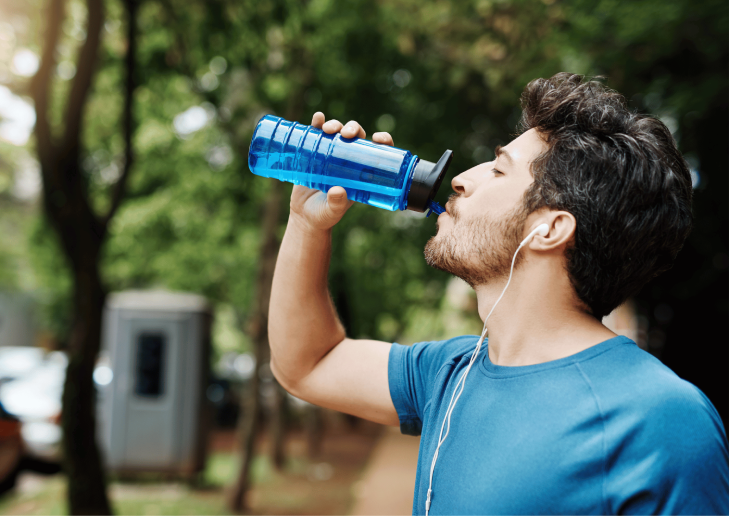When it comes to improving your workouts, most people focus on training intensity, nutrition, or supplements like protein and creatine. But one of the most overlooked performance boosters is hydration—and more specifically, the balance of electrolytes in your body.
Whether you’re running a marathon, lifting heavy weights, or powering through a HIIT session, proper hydration keeps your body functioning at peak efficiency. Neglect it, and you may experience fatigue, cramping, dizziness, and reduced performance.
Why Hydration Matters in Fitness
Your body is about 60% water, and every cell, tissue, and organ depends on it to work properly. During exercise, you lose water through sweat and breathing. Even a 2% drop in hydration can lead to noticeable decreases in endurance, strength, and focus.
Key roles of water in fitness:
-
Regulating temperature: Sweat helps keep your body from overheating.
-
Transporting nutrients: Water carries oxygen and essential nutrients to muscles.
-
Joint lubrication: Prevents stiffness and injury during high-intensity movements.
-
Waste removal: Flushes out byproducts like lactic acid that contribute to fatigue.
The Role of Electrolytes in Performance
Electrolytes are minerals that carry an electric charge, helping your body maintain fluid balance, muscle function, and nerve signaling. The major electrolytes include:
-
Sodium: Maintains fluid balance and helps with nerve impulses.
-
Potassium: Supports muscle contractions and prevents cramping.
-
Magnesium: Aids in energy production and reduces muscle fatigue.
-
Calcium: Essential for muscle contraction and bone health.
-
Chloride: Works with sodium to regulate hydration.
During intense exercise—especially in hot or humid conditions—you lose electrolytes through sweat. Without replenishment, you may experience muscle cramps, weakness, confusion, or even heat-related illnesses.
How to Maintain Optimal Hydration & Electrolyte Balance
1. Pre-Workout:
Drink 16–20 ounces of water 2–3 hours before exercise. If you’re working out in extreme heat, consider an electrolyte-enhanced drink before starting.
2. During Workout:
For workouts under an hour, water is typically enough. For sessions longer than 60 minutes, especially in hot conditions, use a sports drink with sodium, potassium, and magnesium.
3. Post-Workout:
Replenish lost fluids with 16–24 ounces of water for every pound of sweat lost. A recovery drink with electrolytes can speed rehydration.
Supplement Options for Hydration & Electrolytes
-
Electrolyte Powders/Tablets – Portable, easy to mix with water, and customizable for your needs.
-
Coconut Water – A natural source of potassium and magnesium.
-
Sports Drinks – Convenient for endurance training, but watch for excess sugar.
-
Hydration Capsules – Ideal for athletes who sweat heavily or train in high heat.
-
Magnesium Supplements – Can help reduce post-exercise muscle cramps.
Pro Tips for Staying Hydrated During Training
-
Don’t wait until you’re thirsty—thirst is a late indicator of dehydration.
-
Monitor your urine color: pale yellow means hydrated; dark yellow means drink up.
-
Adjust fluid intake based on temperature, humidity, and workout intensity.
-
Avoid overhydration (hyponatremia) by balancing water with electrolytes.
Final Takeaway:
Hydration is more than just drinking water—it’s about maintaining the right balance of fluids and electrolytes so your body can perform, recover, and stay healthy. By combining proper hydration strategies with targeted supplements, you’ll boost endurance, reduce fatigue, and get the most out of every workout.

